Creating Change Through Art and Education
At the heart of the Academy of Fine Arts and Literature lies a space dedicated not only to art and literature but also to empowerment and transformation. The Women’s Empowerment Centre was established in 1977 to provide underprivileged women with skills, education, and confidence — enabling them to build dignified lives.
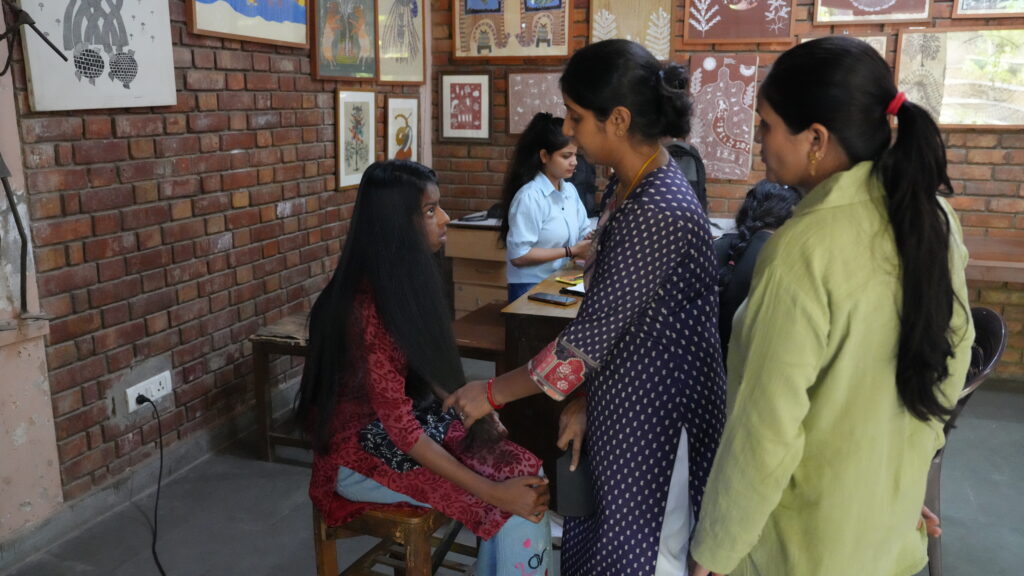
Our Work
Vocational Training
Courses in tailoring, weaving, and other skills that open opportunities for financial independence.
Literacy & Education
Basic education programs for women and young girls who had little access to schooling.
Creative Workshops
Art, craft, and design workshops that encourage expression while also creating livelihood opportunities.
Community Support
A safe space where women find solidarity, mentorship, and the courage to shape their futures.
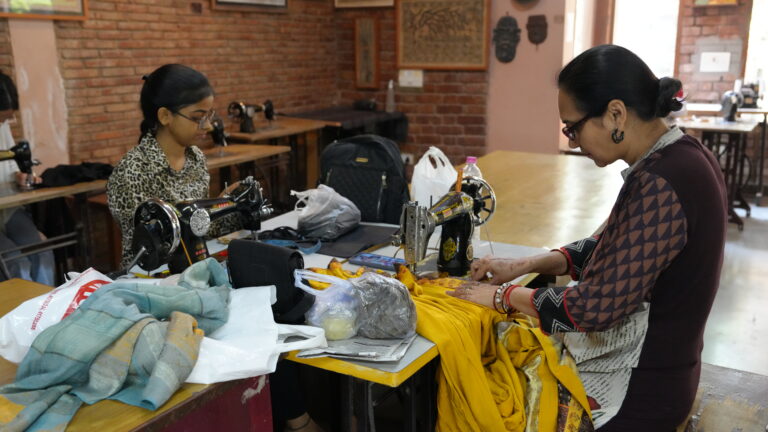
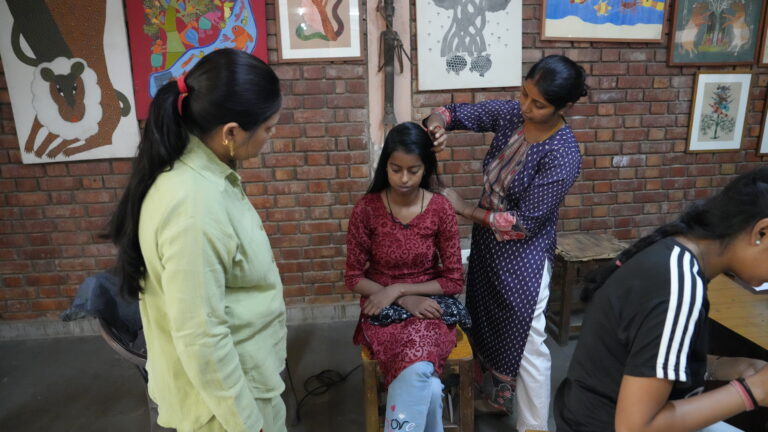
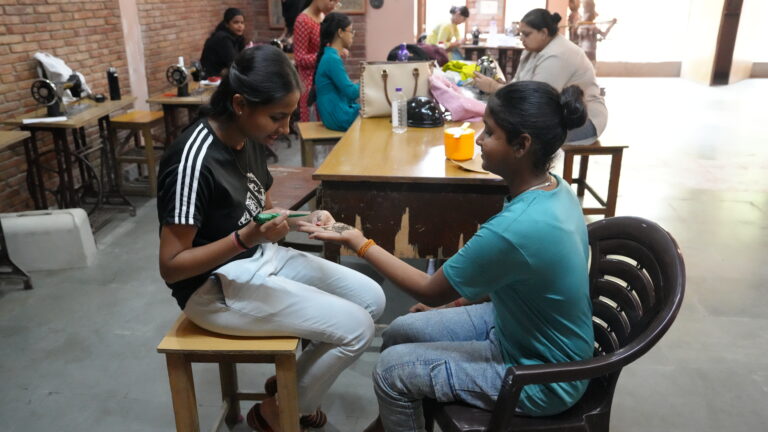
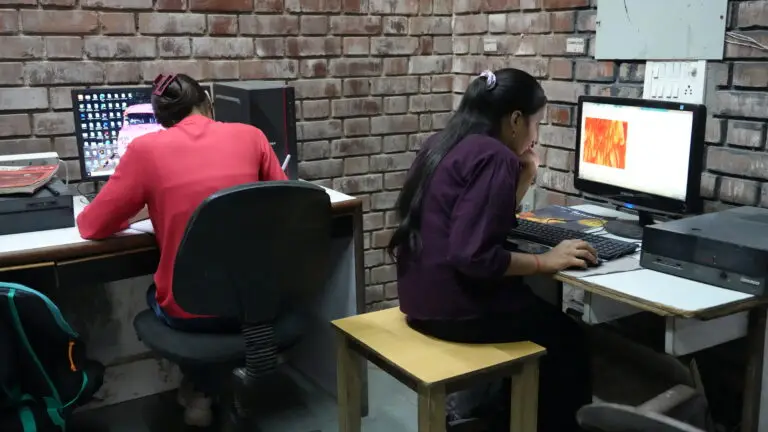
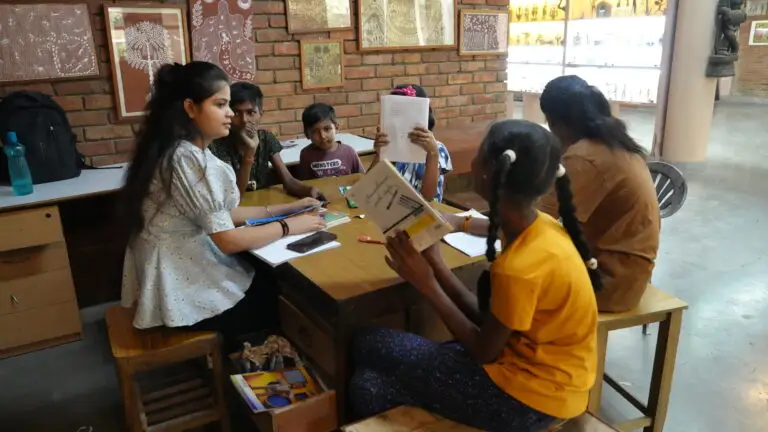
Impact
Over the decades, hundreds of women have graduated from AFAL’s training programs, gaining both economic independence and self-confidence. Many have gone on to support their families, start small businesses, and inspire their communities.
Why It Matters
The Women’s Empowerment Centre embodies AFAL’s belief that culture and social change go hand in hand. Just as museums preserve heritage and FOSWAL builds dialogue, this centre ensures that the benefits of art and education reach the most vulnerable sections of society.
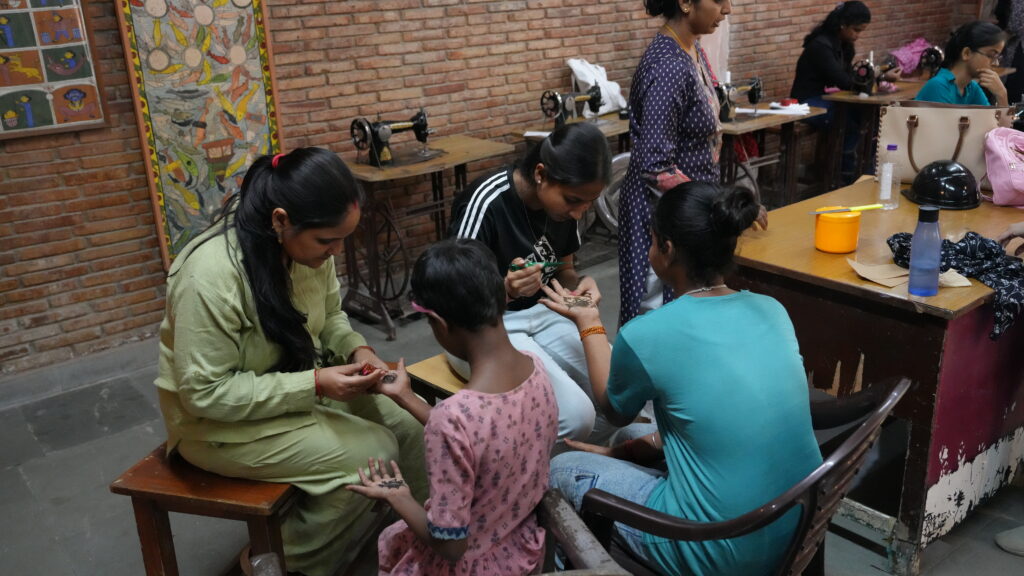
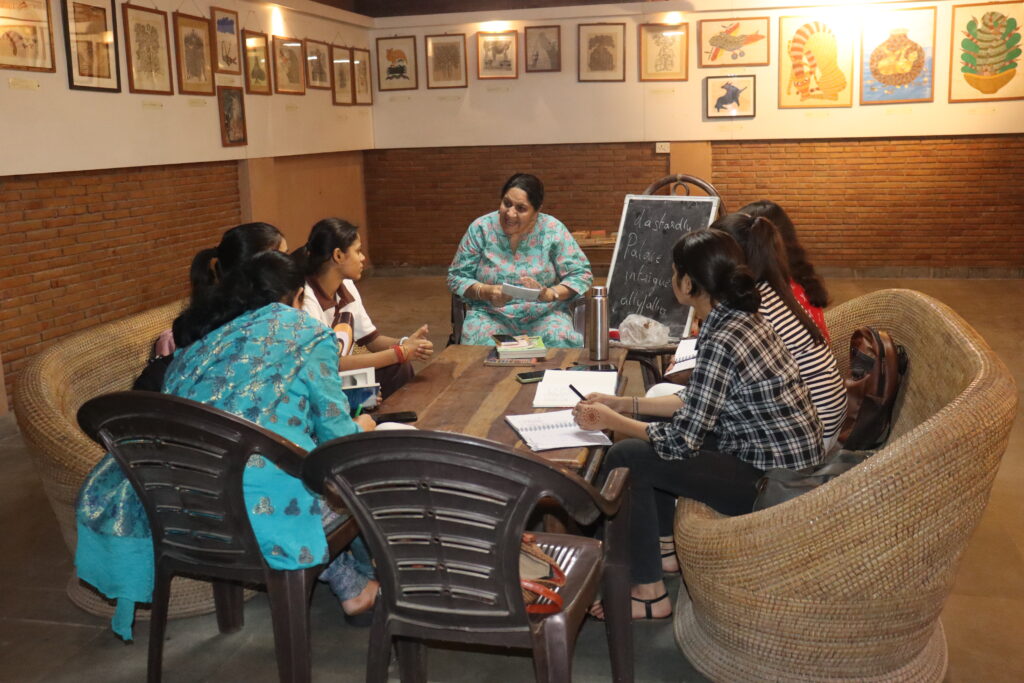
Classes at the Academy
At the Academy of Fine Arts and Literature, we believe in nurturing skills, creativity, and confidence across all ages. Our Free of Cost classes are designed to provide both vocational training and cultural enrichment, guided by experienced teachers in a supportive environment.
Tailoring
Learn the craft of stitching and garment-making with hands-on training in tailoring. The class focuses on practical skills including cutting, sewing, and finishing. Students gain confidence in creating clothing, whether for personal use or professional opportunities, building a foundation for economic independence and creativity in fabric design.
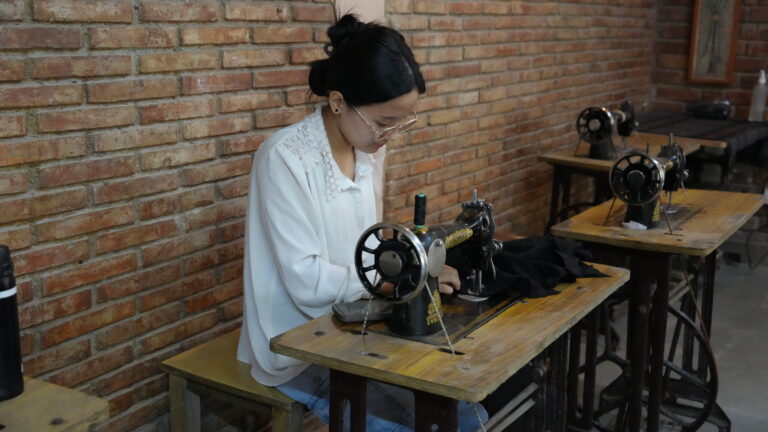

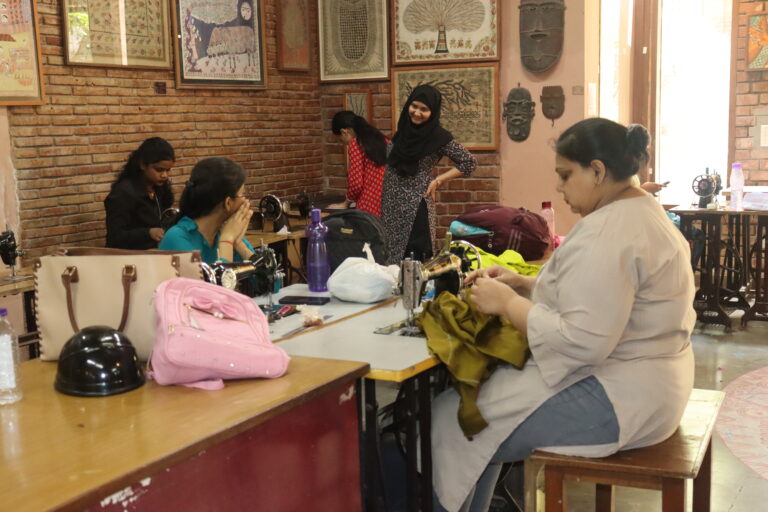
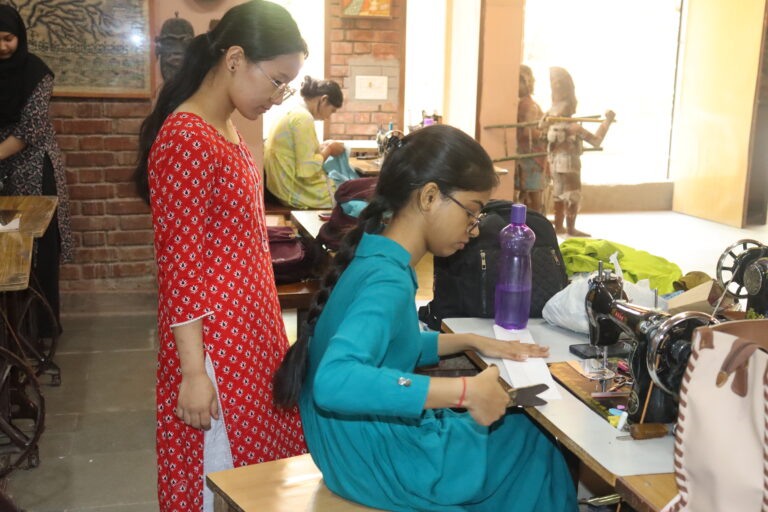
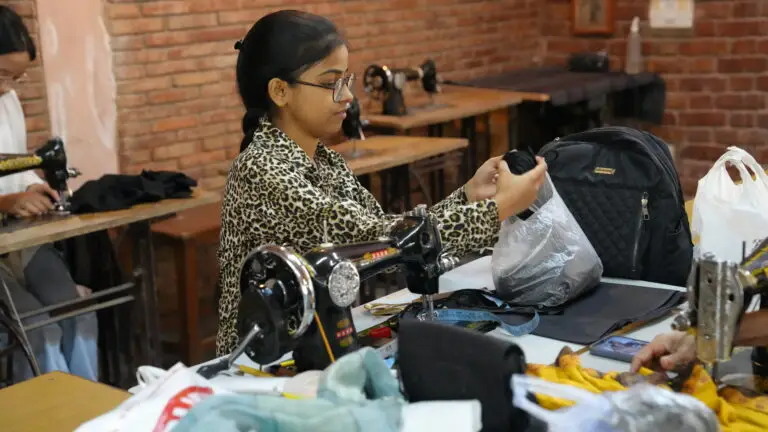
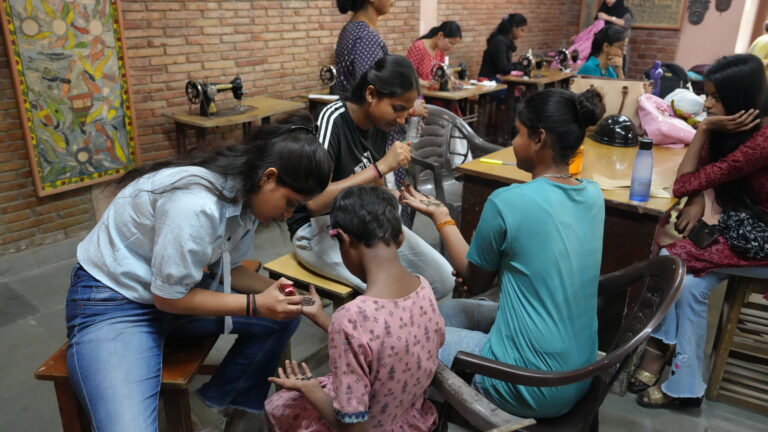
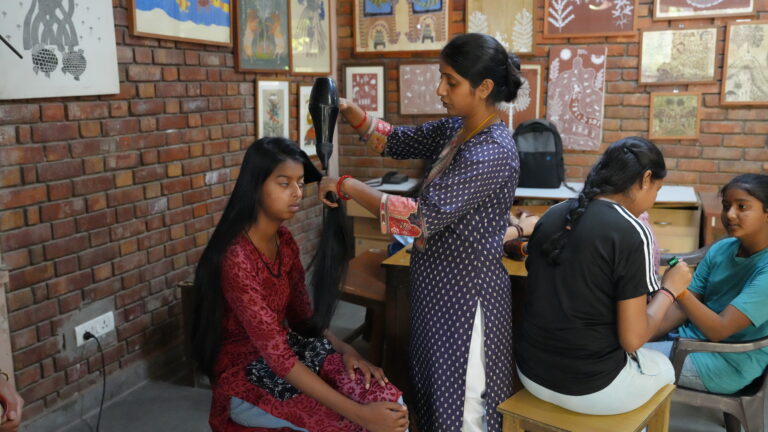
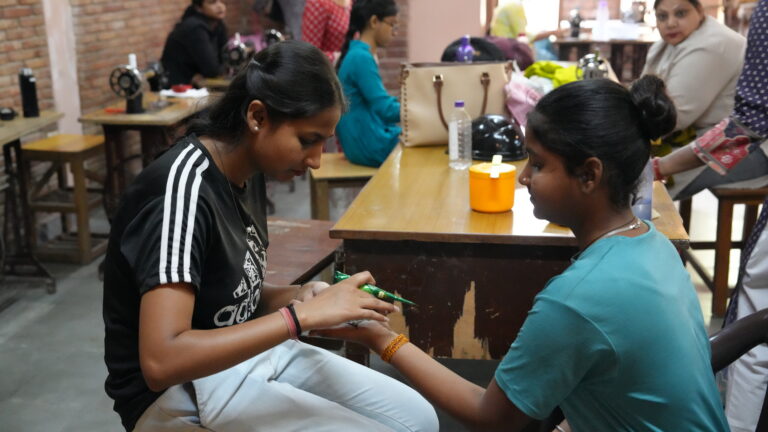
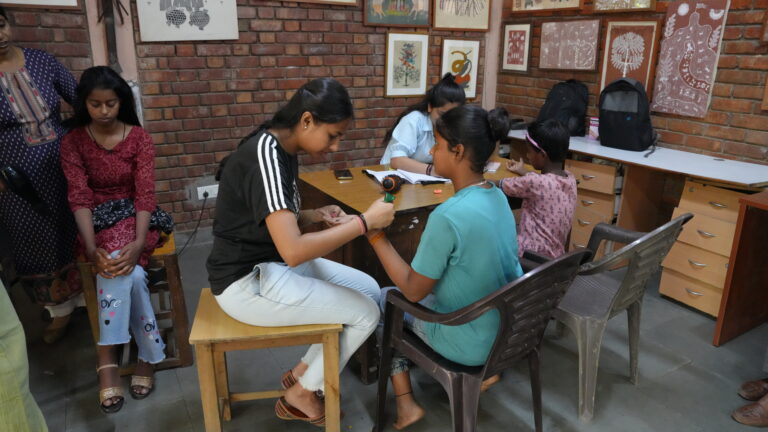
Beauty Training
This course provides training in personal grooming, hair care, skin treatments, and makeup techniques. It equips students with both professional and everyday skills, preparing them for work in salons or self-employment. With individual attention and practice, students learn to combine artistry and technique, building confidence in the beauty industry.
Computer Class
Our computer class introduces digital literacy and essential software skills. Students learn typing, word processing, spreadsheets, internet use, and email communication. These skills prepare learners for academic, professional, and personal growth in an increasingly digital world. The class emphasizes practical exercises and confidence-building, ensuring technology feels approachable and useful.
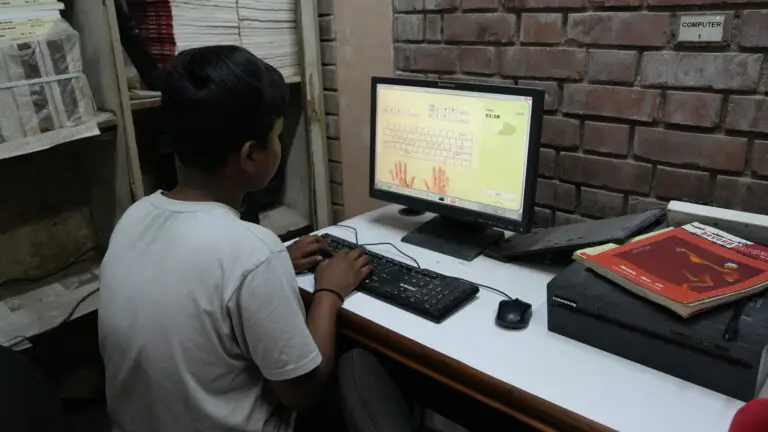
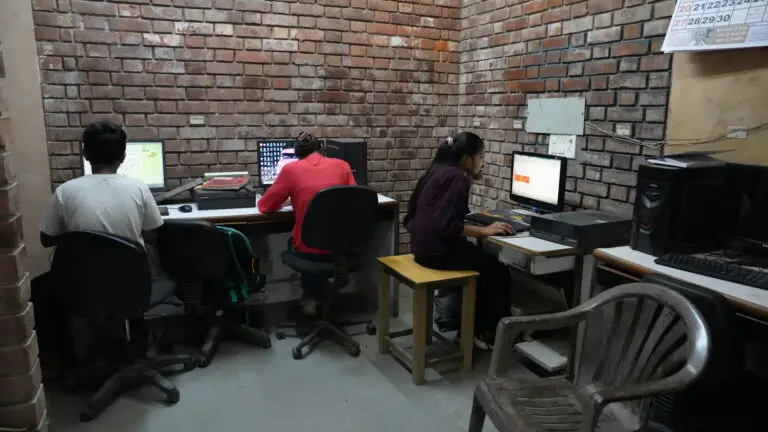
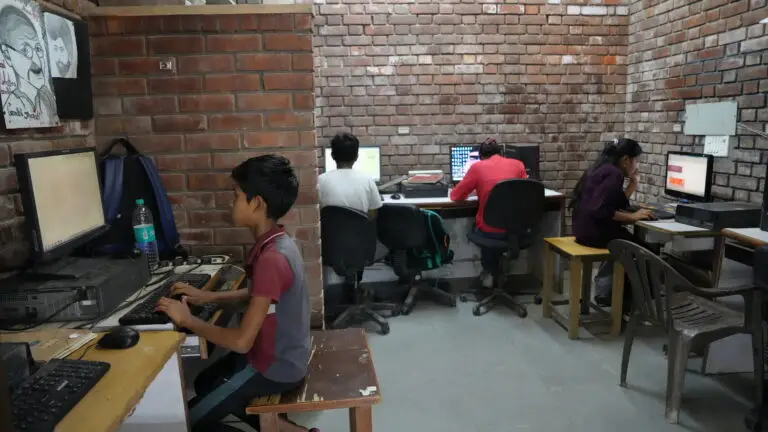
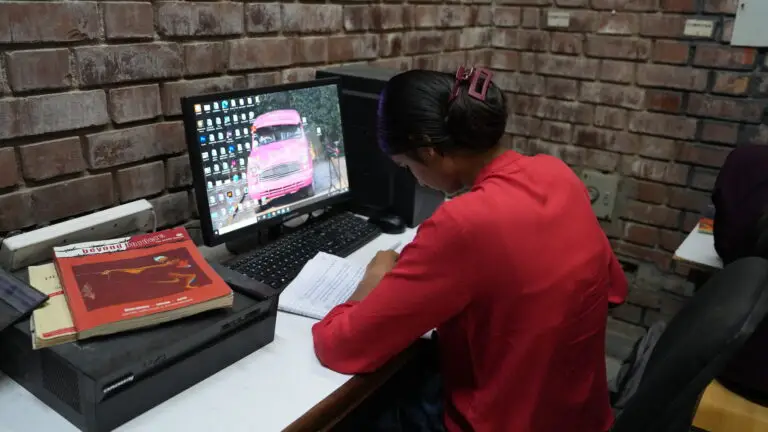
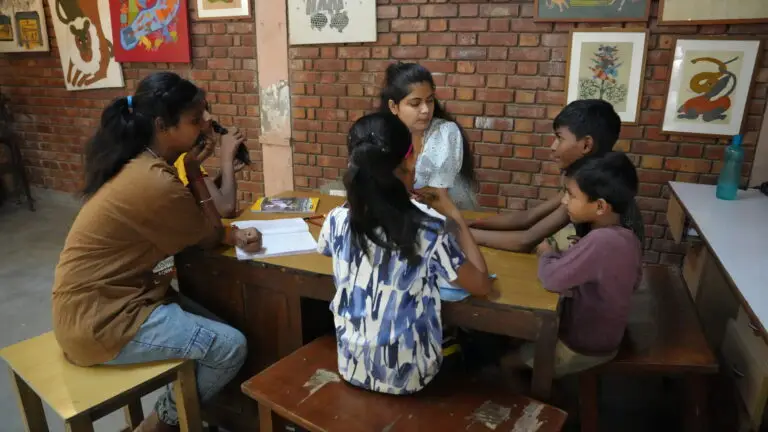

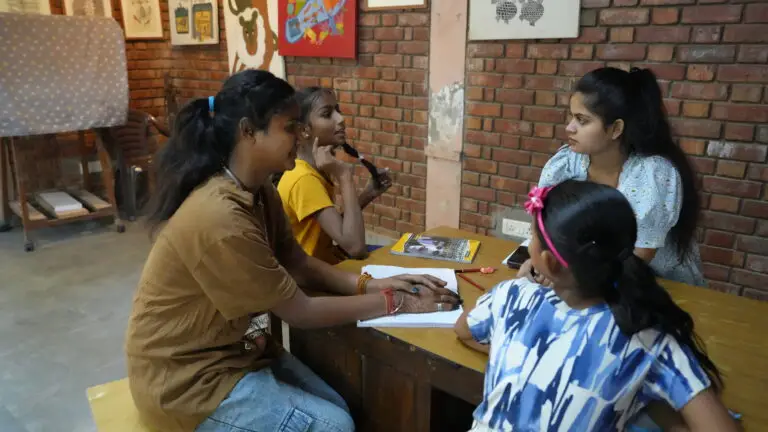
Homework Assistance
This program supports schoolchildren with their daily studies, assignments, and exam preparation. Teachers provide personalized help, ensuring concepts are understood and progress is steady. The goal is to create a positive learning environment where students build confidence, overcome academic challenges, and cultivate disciplined study habits that benefit long-term growth.
English Speaking
(Wed & Thu,
10:30 – 12:30 pm)
Improve spoken English through engaging practice sessions, roleplays, and conversation exercises. The class develops fluency, vocabulary, and confidence in public speaking. Designed for learners at different levels, it emphasizes communication over grammar perfection. Students gain the skills to express themselves clearly, enhancing opportunities in academics, careers, and social settings.


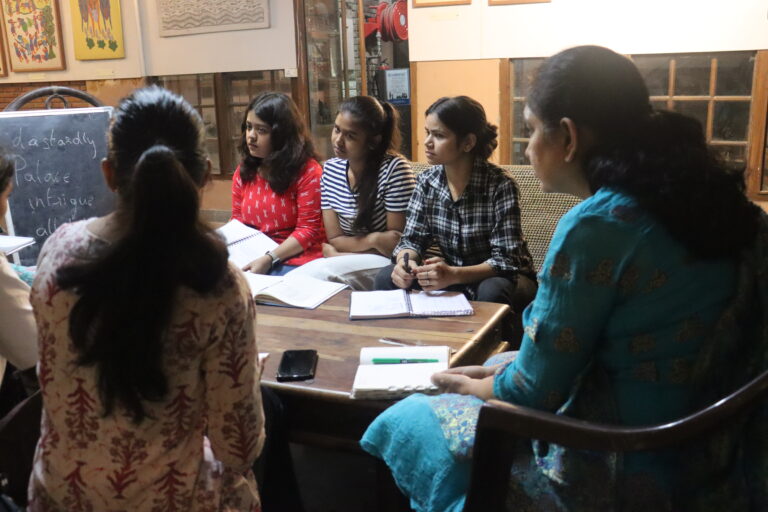
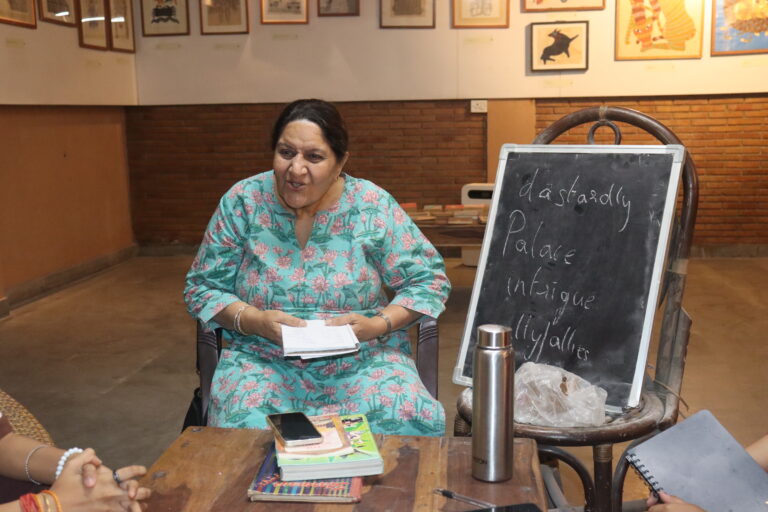

Painting Class
(Twice a month)
Discover creativity and self-expression through painting. Students experiment with colors, techniques, and styles across traditional and modern forms. Each session encourages individual expression while learning structured methods. With guidance, participants develop artistic skills, confidence, and appreciation for visual arts. Classes are accessible to beginners and enthusiasts of all ages.
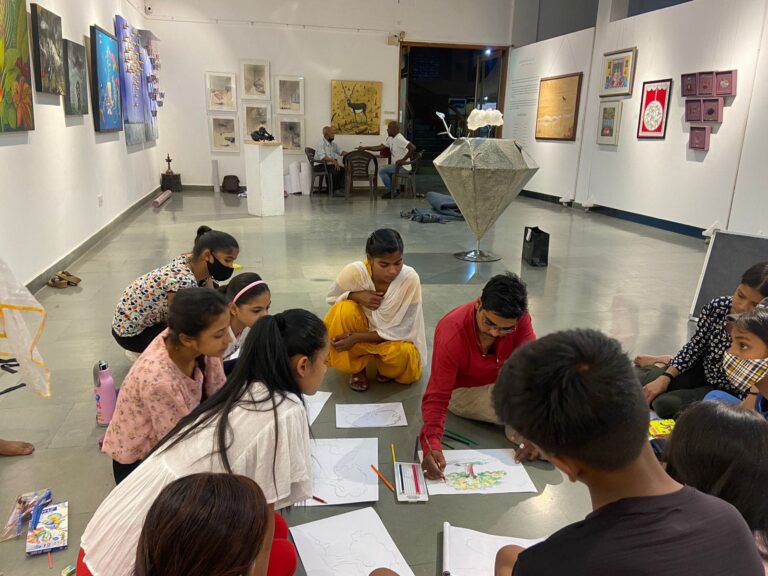
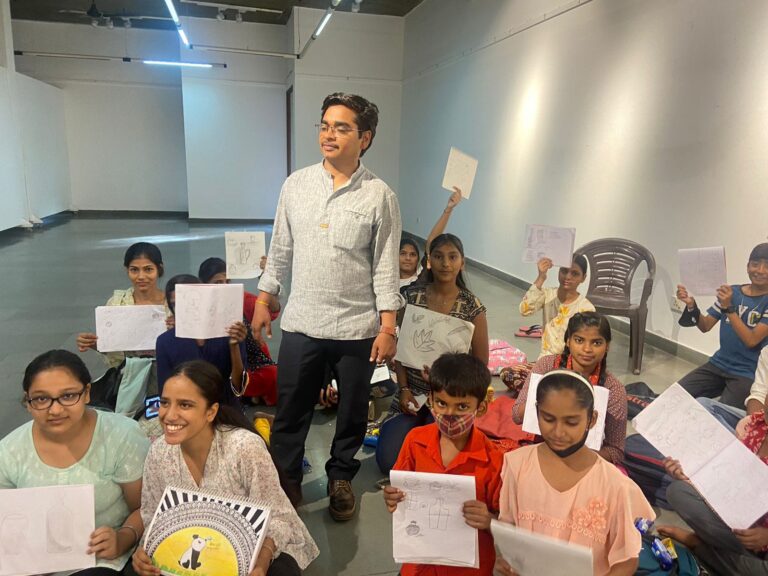
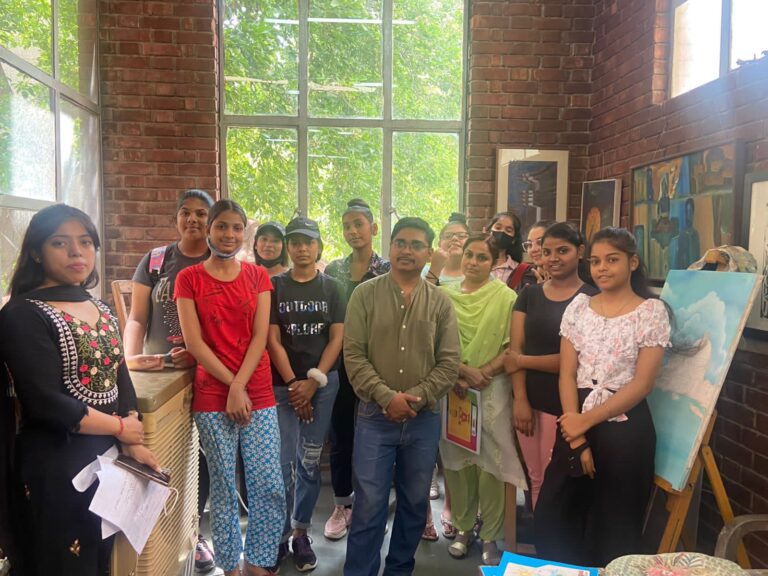
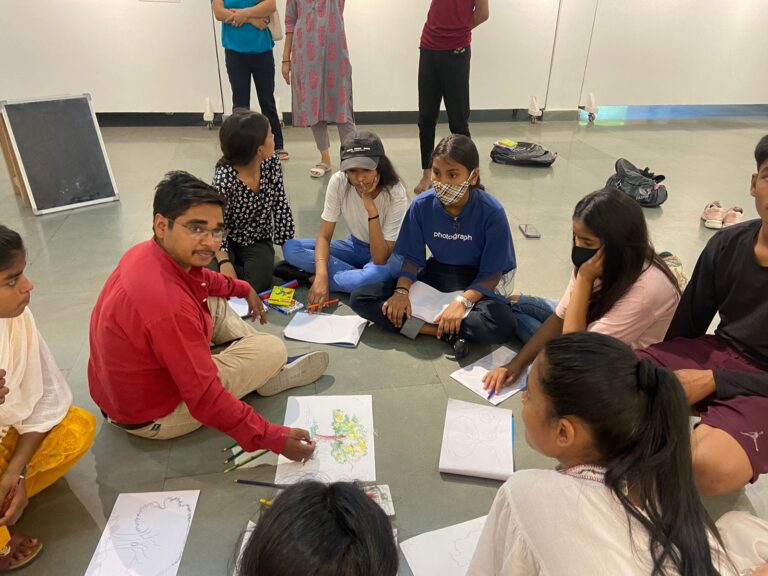
Sculpture Class
(Thu & Sat,12:00 – 1:30 pm)
Explore the tactile world of sculpture through hands-on sessions in clay and other mediums. Students learn basic techniques of shaping, carving, and finishing. The class nurtures imagination and patience while connecting with the physicality of art. Participants gain practical skills and creative expression in three-dimensional forms and structures.
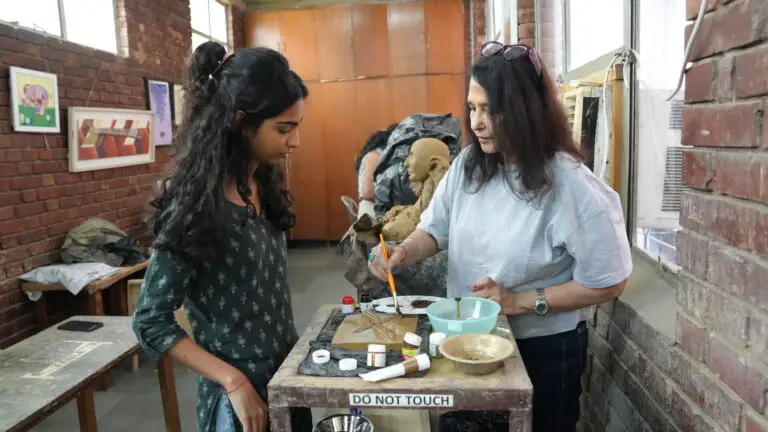
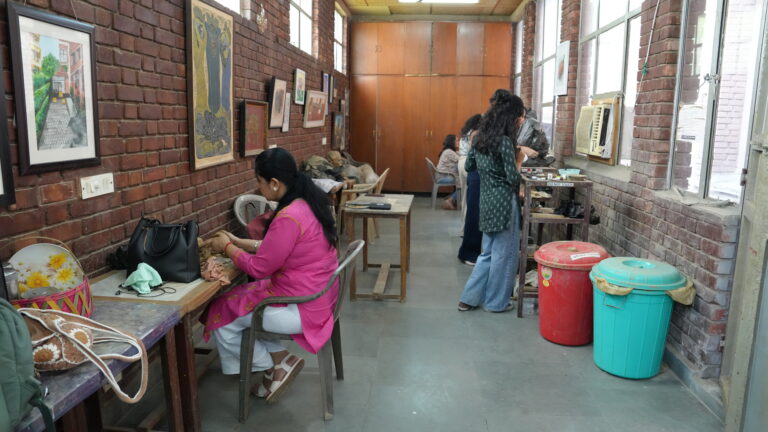
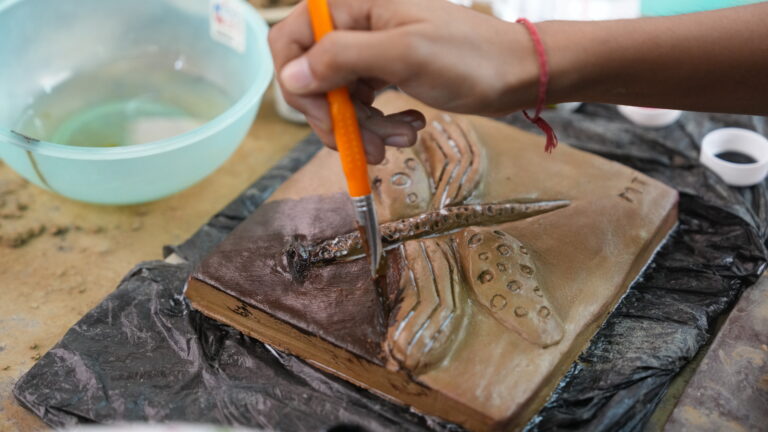
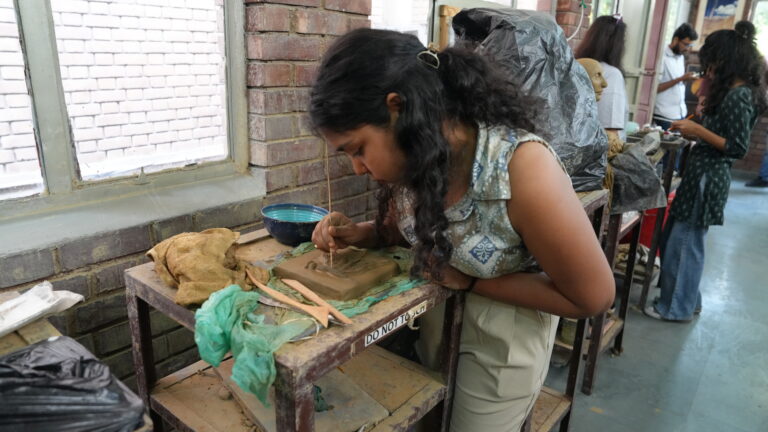
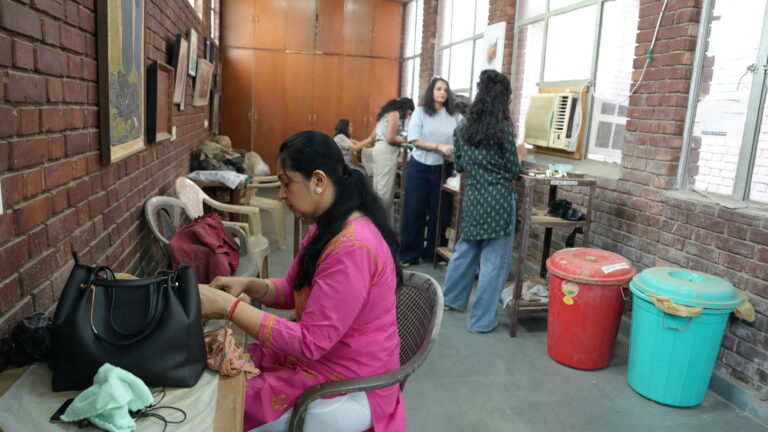
Kathak
(Mon, Wed & Sat,
5:30 – 7 pm)
Experience the elegance of Kathak, a classical dance form blending rhythm, storytelling, and movement. Students practice footwork, expressions, and choreography under guidance. The class instills discipline, grace, and cultural appreciation, offering both physical fitness and artistic enrichment. It welcomes beginners and seasoned learners passionate about dance and Indian traditions.
